Assessments of Oppression Need More Nuance
Philadelphia Black Journalists Chapter Leaves NABJ (Dec. 16 update)
. . . NABJ Wishes Philadelphia Group Well
The Black Woman Some Believe Co-Founded ‘Ms.’
. . . Steinem Has No Idea How ‘Myth’ Started (Dec. 17 update)
Number of Jailed Journalists Breaks Record
Leonard Pitts Signs Off After 46 Years
NPR Cancels Next Year’s Summer Internship
Lightfoot Wants to Hide Police Radio Traffic
Half of NPR’s ‘Ghetto Life’ Team Dies
Right-Leaning Spanish Radio Spreads Falsehoods
Byron Allen Makes Deal to Stream PBS Content
Racism Poured From Nation’s First Water Taps
Short Takes: Fannie Lou Hamer and International Documentary Association Awards; drop in diversity in commercials; journalists at U.S.-Africa Leaders Summit; Hebrew Israelite groups; Central Park’s new “Gate of the Exonerated”; HuffPost-BuzzFeed Talent Residency; Broadway’s KPOP musical; “critical role Black journalists play”; retort from “heavily pregnant” anchor; Prince Harry, Meghan and Netflix;
Tre’vell Anderson and transgender; Jennifer Kho and John W. Fountain; parking lot over Black and Cuban graves; oops on “only Black” television network president; Jesse Jackson and Standard General-Tegna merger proposal; journalist death on “the rooftop of Africa”; Facebook role in Ethiopian violence; Chinese-owned app and misinformation in Nigeria.
Homepage photo: Morocco at the World Cup (Credit: ESPN FC)
Support Journal-ismsDonations are tax-deductible.

Assessments of Oppression Need More Nuance
As news media praised Morocco’s victories at the World Cup this week as heralding new respect for African and Arab countries, the press-freedom group Reporters Without Borders was handing out awards to journalists who exemplified courage, impact and independence.
 The honor for “independence” went to Omar Radi (pictured) of Morocco. But Radi couldn’t be at the Paris ceremony, or at the games. He was in a Moroccan prison.
The honor for “independence” went to Omar Radi (pictured) of Morocco. But Radi couldn’t be at the Paris ceremony, or at the games. He was in a Moroccan prison.
It’s also unlikely that there was much cheering in Western Sahara, the territory occupied by Morocco that is called “Africa’s last colony.” As “Democracy Now!” put it in a noteworthy series in 2018, “Morocco has occupied the territory since 1975 in defiance of the United Nations and the international community. Thousands have been tortured, imprisoned, killed and disappeared while resisting the Moroccan occupation.”
Reporters Without Borders added the next year, “Morocco applies a quasi-systematic policy of turning back the foreign press trying to enter Western Sahara and of harshly punishing the local citizen-journalists who strive to give a version of the news differing from the official line, through social networks. Over the years, these two sorts of blockade have imposed a virtual news black-out on Western Sahara.”
In other words, while Morocco’s World Cup successes are portrayed as a victory of the formerly colonized over the former colonizers, Morocco has itself become a colonizer.
On the “PBS NewsHour” on Wednesday, Shireen Ahmed, a senior contributor to the CBC Sports in Canada, gave this assessment:
One of the things “that I think people in different parts of the world need to understand, really, is that we like to compartmentalize, like, this is an African nation.
“It is definitely situated in North Africa. But the reality is, it’s a nation that’s comprised of many, many peoples. There are Afro-Arabs there. There are Arabs there. There are Amazigh populations, which is a particular tribe and [has] historically been nomadic.
“So it is — it’s far more complex and layered and beautiful at the same time. But there are still discussions about how Arab communities in the rest of the world have embraced Morocco as their own. But then there’s other folks that struggle with that, because there is — there are issues of anti-Black racism within that country as well. . . .”
About the media, Ahmed said, “we centralize our coverage too often here. I think it’s important to read about teams from journalists who know a lot historically, sociologically about those places.” She cited Maher Mezahi of Algeria, a soccer journalist, as one example.
This is what Reporters Without Borders said of Radi, its Moroccan press-freedom honoree.
“This investigative reporter and human rights activist has been subjected to judicial harassment for covering corruption and other sensitive subjects for more than ten years. The authorities began investigating him on suspicion of spying in June 2020, shortly after Amnesty International reported that the Pegasus spyware had been used to hack into his phone.
“A month later, he was jailed on the basis of a rape allegation and ended up being tried simultaneously on the completely different rape and spying charges, increasing doubts about the fairness of the trial. He was sentenced to six years in prison in July 2021. The authorities had been targeting him for at least three years prior to this trial. He began a hunger strike in April 2021 in protest against his detention but had to abandon it after 21 days because he suffers from Crohn’s disease, and has been in very poor health ever since.”
The United States has joined other nations in urging Morocco to respect human rights, including those of journalists.
The United Nations Human Rights Council reviewed Morocco’s human rights record in November.
Among its recommendations was one from the United States: “Ensure journalists, human rights defenders, and other individuals are not prosecuted or detained for the exercise of their rights to freedom of expression, peaceful assembly, or association, and ensure all individuals receive fair trial guarantees.”
Spain urged, “Guarantee the full exercise of the freedoms of expression, press, association and assembly in accordance with the 2011 Constitution, and international human rights standards, as well as the free exercise of the work of journalists and human rights defenders of human rights.”
Uganda recommended, “Strengthen the legal and policy framework to fully implement racial equality of all persons.”
Morocco’s World Cup trajectory ended Wednesday, at least for this year. As The Washington Post reported, “Moroccans were devastated but still proud Wednesday after their national soccer team lost, 2-0, to France in the World Cup semifinals — dashing hopes for an upset that would have sent the first Arab and African club to the tournament’s final match.”
“A Moroccan win would also have been historic in a more profound sense,” the Post’s Siobhán O’Grady reported. “France controlled Morocco as a protectorate for more than four decades until the country’s independence in 1956. More recently, the countries were locked in a diplomatic dispute after France limited visas for Moroccans, leaving citizens of the North African country especially hungry for a triumph against their former colonizer. . . .”
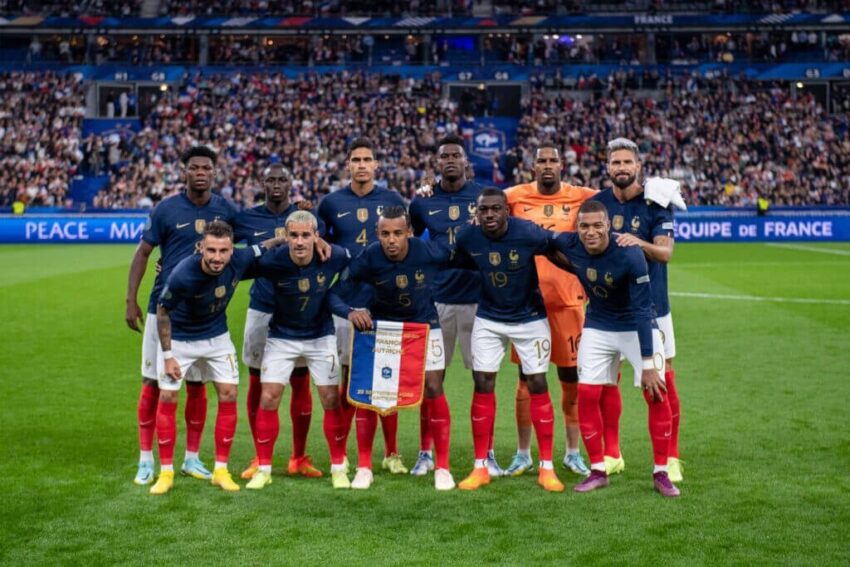
Still, the growing multicultural nature of France and its teams calls for more nuance. Writing in The New York Times, Laurent Dubois of the University of Virginia noted that in 2018, team manager Didier Deschamps “had put together a majority-Black roster, stocked with some of the most remarkable football talents on the planet. Alongside Paul Pogba, whose parents emigrated from Guinea, played the young phenom Kylian Mbappé, whose mother is from Algeria and father is from Cameroon, and the brilliant midfielder N’Golo Kanté, whose parents came from Mali. . . .”
Journal-isms asked two of Western Sahara’s ambassadors for their thoughts. “I rooted for France because it is a [much] better team, besides the Moroccan team represents an expansionist and repressive regime,” said Mouloud Said, envoy to the United States.
Mohamed Yeslem Beisat, Western Sahara’s ambassador to South Africa, and former ambassador to the United States, said of Morocco’s athletes, they “have just been defeated by an African team that played with France flag!”
- Agence France-Presse: Moroccan appeals court upholds six-year sentence for dissident journalist Omar Radi (April 3)
- Kevin B. Blackistone, Washington Post: Morocco’s World Cup team represents a new era of soccer nationalism (Dec. 7)
- Graham Cornwell, Washington Post: For Morocco, a World Cup run that transcends the sport
- Democracy Now! “A Forgotten Conflict”: Sahrawi Activists Slam Moroccan Greenwashing Amid Western Sahara Occupation (Nov. 28)
- Democracy Now!: U.S. Recognizes Morocco’s Occupation of Western Sahara in Latest Betrayal of Sahrawi People (Dec. 11, 2020)
- Gerren Keith Gaynor, theGrio: Deaths of African migrants at Morocco-Spain border part of ongoing racist immigration system, advocates say (July 3)
- Human Rights Watch: Morocco: Journalist in Prison After Unfair Trial (Nov. 25, 2021)
- Journal-isms: Black Journalists Back From “Africa’s Last Colony” (March 7, 2015)
- Journal-isms: Black Press Takes Free Trip to Morocco (and follow-ups) (2014)
- RFK Human Rights: 5 Things to Know About Western Sahara
- Paweł Wargan, Mail and Guardian, South Africa: Africa’s forgotten colony in the Sahara (Nov. 16)
Anchor Rick Williams of WPVI-TV receives the Philadelphia Association of Black Journalists’ 2022 Journalist of the Year award in November. (video) (Credit: WPVI-TV)
Philadelphia Black Journalists Chapter Leaves NABJ
The Philadelphia Association of Black Journalists, which precedes the National Association of Black Journalists and gave NABJ its first president in activist editor Chuck Stone, has left the national organization.
The Philadelphia unit disputed the requirements the larger group has set for its chapters.
They range from a requirement to supply the email addresses of members of the local organization who aren’t members of the national group to a mandate that two-thirds of the members of PABJ be eligible for NABJ membership. They also disagree about the split of proceeds between national and local.
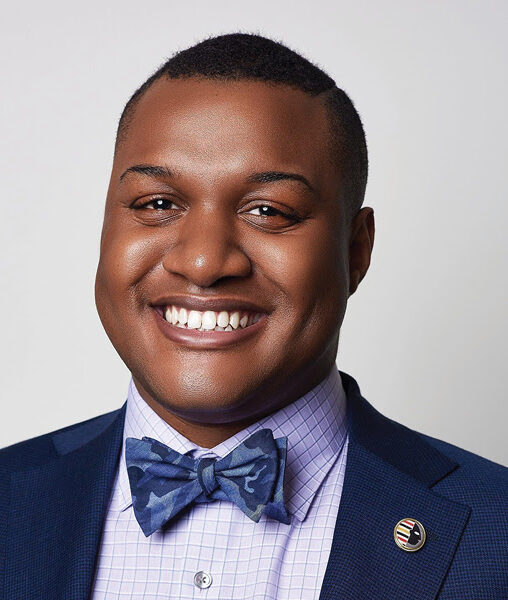 PABJ President Ernest Owens (pictured) told Journal-isms Friday that his organization, which he said has more than 300 members, prepared its statement of disaffiliation Thursday but released it Friday only after negotiations with NABJ President Dorothy Tucker (pictured, below) failed.
PABJ President Ernest Owens (pictured) told Journal-isms Friday that his organization, which he said has more than 300 members, prepared its statement of disaffiliation Thursday but released it Friday only after negotiations with NABJ President Dorothy Tucker (pictured, below) failed.
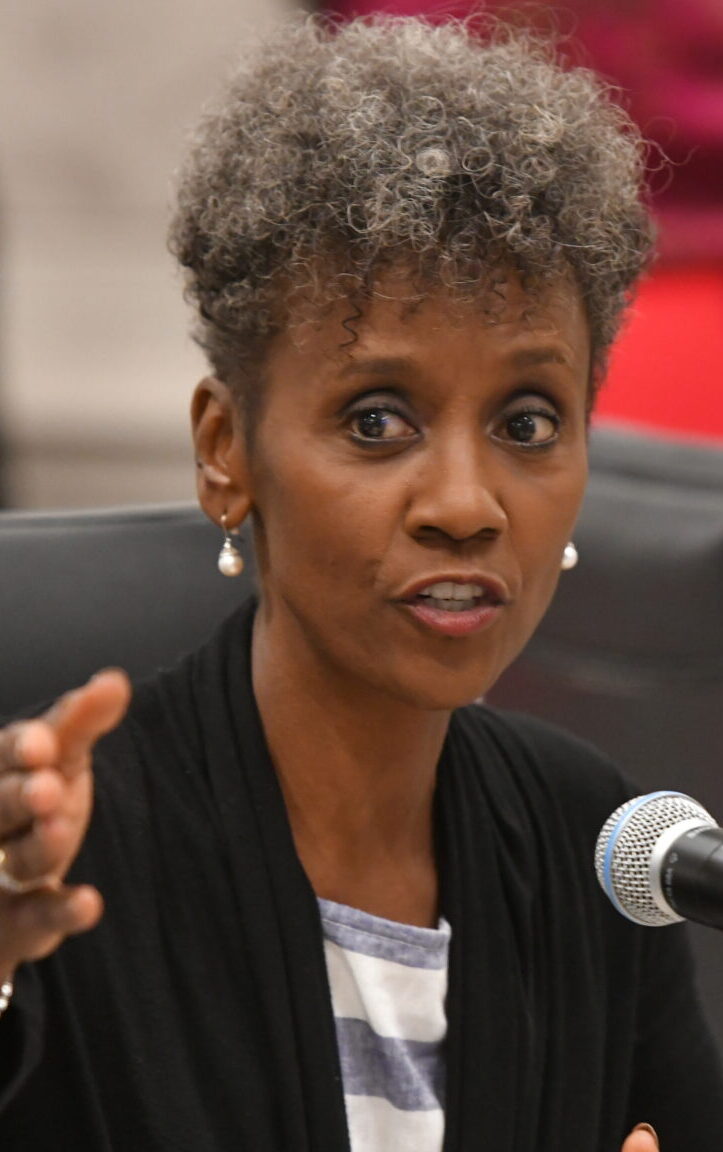 “Until there is a more reputable National President that can represent our needs in good faith, alongside a board that can prioritize principle over personal politics, we have zero confidence in NABJ’s current leadership team. We will not be submitting a chapter audit at this time,” the PABJ statement said. “We will reconsider our organization’s options of affiliation to their organization when a new NABJ President is elected that may best understand the concerns we have raised with them for over a year.”
“Until there is a more reputable National President that can represent our needs in good faith, alongside a board that can prioritize principle over personal politics, we have zero confidence in NABJ’s current leadership team. We will not be submitting a chapter audit at this time,” the PABJ statement said. “We will reconsider our organization’s options of affiliation to their organization when a new NABJ President is elected that may best understand the concerns we have raised with them for over a year.”
An NABJ spokesperson did not respond immediately to a request for comment, but the PABJ statement quoted Tucker:
“Your decision not to submit a chapter audit and remain out of compliance means the Philadelphia [Association] of Black Journalists will not receive the benefits of being affiliated with the National Association of Black Journalists.
“Furthermore, we must abide by our constitution. Chapter 5, Article 1, Section 2, (B) of the NABJ Constitution reads: The applying organization, at the time of its application for alignment with NABJ, and at the time of the annual renewal of that status, submits to NABJ a membership list showing that two-thirds of the organization’s members are eligible for NABJ status as provided in Chapter 4, Article I, Sections 2-6 of this constitution.”
Conflict between Tucker and the Philadelphia chapter surfaced during Tucker’s 2021 re-election effort. She was challenged by Manuel McDonnell-Smith, PABJ president in 2019 and 2020, who maintained that NABJ needed to become closer to its members. Tucker won, 531 votes to 111. McDonnell-Smith tweeted his support for PABJ pulling out.
PABJ was founded in 1974. NABJ followed a year later on Dec. 12, 1975. Today it claims a membership of more than 4,000.
Owens said he was not urging individual members to leave the national organization.
. . . NABJ Wishes Philadelphia Group Well
NABJ Executive Director Drew Berry (pictured) issued the following statement shortly after 6 p.m. Eastern time on Friday:
 “In explaining PABJ’s decision to no longer be affiliated with the national organization, chapter president Ernest Owens advised that one main reason is that the group no longer met our constitution’s requirement for affiliates to have at least two-thirds (66 percent) of its members eligible for NABJ membership.
“In explaining PABJ’s decision to no longer be affiliated with the national organization, chapter president Ernest Owens advised that one main reason is that the group no longer met our constitution’s requirement for affiliates to have at least two-thirds (66 percent) of its members eligible for NABJ membership.
“ ‘In full transparency, PABJ doesn’t currently have two-thirds of our members eligible for NABJ status based on your constitution — and might not ever be given our current success,” Owens stated.
“Eligible persons for NABJ membership include journalists, journalism educators, students interested in pursuing a career in journalism, and people or entities that support the organization’s vision and goals (this includes media-related professionals working primarily in a field related to journalism – such as public relations, public information, marketing, communications, advocacy, legal, etc.).
“A vast majority of our professional affiliate groups have already turned in their compliance documents for the coming year. We look forward to continuing amicable and positive relationships with those local chapters.
“We want our national members in Philadelphia to know that NABJ values their contributions to our organization and industry. We will continue to advocate for them and support them. We have heard from multiple longtime, national members who are also members of PABJ that have indicated they do not concur with the leadership’s decision to no longer affiliate with NABJ. We are working to address their concerns.”
PABJ later “liked” a tweet from former PABJ president Manuel McDonnell-Smith, “It took years of hard work for @pabj to get to this point where we can stand strong alone for truth. This fight is not about @NABJ. It’s about representing for the legion of underserved + under-supported members, leaders, and who want and need more from this organization.”
- Philadelphia Association of Black Journalists: Here’s the Quick Facts on PABJ’s Departure from NABJ (Dec. 16)
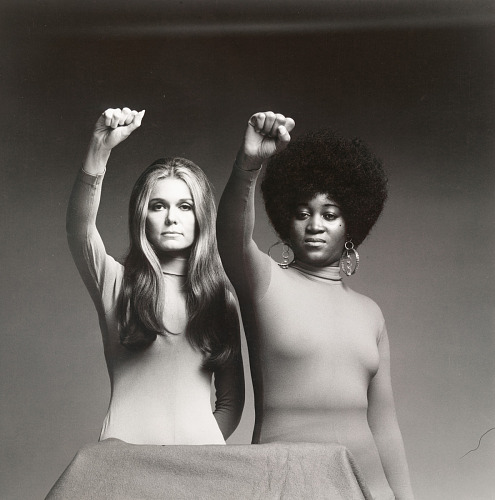
The Black Woman Some Believe Co-Founded ‘Ms.’
“It should not be lost on anyone that Dorothy Pitman Hughes died on Dec. 1, but her death did not make news until more than a week later,” Boston Globe columnist Renee Graham wrote Thursday in a newsletter for Globe subscribers. “A community activist, child welfare advocate, and pioneering feminist, hers was a life devoted to the hard work of changing the world, not garnering headlines.
“In 1971, Pitman Hughes co-founded Ms. Magazine with Gloria [Steinem], an achievement celebrated in an iconic Esquire photo. Standing side by side, Pitman Hughes and [Steinem] each have a clenched right fist raised in a Black Power salute. That photo now hangs in the Smithsonian’s National Portrait Gallery.
“But in a Town & Country article published in 2020 that purports to tell ‘the true story’ of Ms. Magazine’s origins, Pitman Hughes is never mentioned. To tell the true story would be to acknowledge how Black women like Pitman Hughes had to create space for intersectional feminism that also challenged racism and classism — including within a women’s movement then dominated by middle-class white women.
“ ‘As a Black woman I’m speaking about sexism and racism and I believe that is needed, especially where women are talking about being sisters and we really are getting it together, I think we can’t allow women to forget it,’ Pitman Hughes, who also co-founded the Women’s Action Alliance, said in a 1971 interview. ‘I think I have as a Black woman a real function in coming out with a white woman and saying these things.’
“Raised in the Jim Crow South, Pitman Hughes committed her life to social justice after Klansmen nearly beat her father to death in Georgia. She understood a fact [that] few white feminists bothered to recognize more than 50 years ago, and some still struggle with today. Black women have always been at the vanguard of progressive social movements for freedom and equality and that you can’t tackle one ‘ism’ while ignoring or perpetuating another. . . .”
- Clay Risen, New York Times: Dorothy Pitman Hughes Dies at 84; Brought Black Issues to Feminism
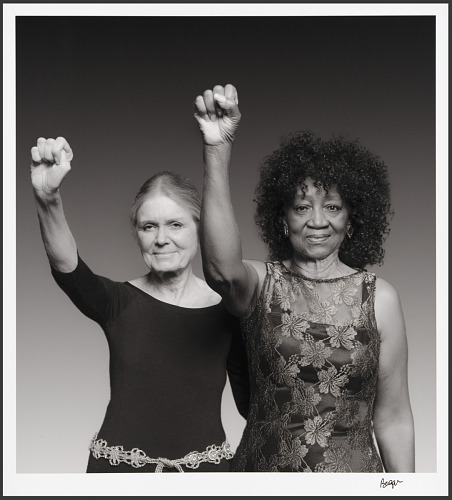
The women re-enacted their famous photo in 2017, and the new image was added to the Smithsonian National Portrait Gallery collection. Photographer Daniel Bagan said, “The women were dynamically engaged in their iconic stance, and the result was inspiring. Even decades later, their power and beauty show no sign of age, just wisdom reflected in their soft smiles.” (Credit: National Portrait Gallery, Smithsonian Institution)
. . . Steinem Has No Idea How ‘Myth’ Started
Gloria Steinem said Saturday that “I have no idea how the myth got started that Dorothy founded or ever worked at Ms. Magazine” (See above item), referring to some stories about Black feminist Dorothy Pitman-Hughes, who died on Dec. 1 in Tampa, Fla., at 84.
The Associated Press was among those making the mistake, though it was later corrected.
“She was an organizer, not a writer or editor, and she was proud of the fact that she didn’t go to college and had worked as a maid as well as a singer in New York,” the pioneering feminist messaged Journal-isms through an intermediary. “My guess is that our speaking photo — the one with raised fists — was wrongly interpreted by someone and that got repeated. In fact, it was the differences in our life experiences that made us a good speaking team.”
Steinem also said, “No, Dorothy was neither a founder nor editor of Ms. magazine, she founded and ran the West 80th Street Childcare Center in New York City. After I met her and wrote about her Center in New York Magazine, she and I sometimes travelled and spoke together. We only stopped after she had another child, and traveling with an infant was too difficult. Dorothy later founded and ran a [stationery] and office supply store on 125th Street in Harlem,and organized small business owners there.
“Dorothy was also a great singer, and her whole family was musically gifted.
“On the highway near Lumpkin, Georgia, her family home, the state erected a monument to Dorothy, an extraordinary and well- deserved honor, and we both went there to celebrate it.
“Dorothy is survived by children and grandchildren now living mostly in Florida.”
A Dec. 10 Associated Press story, still on some websites, began, “Dorothy Pitman Hughes, a pioneering Black feminist, child welfare advocate and activist who co-founded Ms. Magazine with Gloria Steinem . . .”
However, a Dec. 10 story updated Dec. 11 says, “Though Hughes was often said to have also co-founded Ms. Magazine with Steinem in the same era and biographer [Laura L.] Lovett says she helped inspire the idea, she did not have a formal role with the magazine.“
Boston Globe columnist Renee Graham, who accused media outlets of ignoring Pitman-Hughes’ role in founding Ms., messaged Journal-isms later Saturday, “I will address the discrepancy in my next newsletter but, make no mistake, Dorothy Pitman Hughes was and will remain a pioneering Black feminist.”
- Abigail Pogrebin, New York: How Do You Spell Ms. (Oct. 28, 2011)
- Carrie N. Baker, Ms.: The Story of Iconic Feminist Dorothy Pitman Hughes: ‘With Her Fist Raised’ (Sept. 9, 2021)
Number of Jailed Journalists Breaks Record
“It’s been another record-breaking year for the number of journalists jailed for practicing their profession,” Arlene Getz wrote Wednesday for the Committee to Protect Journalists.
“The Committee to Protect Journalists’ annual prison census has found that 363 reporters were deprived of their freedom as of December 1, 2022 – a new global high that overtakes last year’s record by 20% and marks another grim milestone in a deteriorating media landscape.”
The Paris-based Reporters Without Borders released a separate study. “A record total of 533 journalists are currently detained worldwide, according to the annual round-up of violence and abuses against journalists published by Reporters Without Borders (RSF). The number of those killed has increased again this year – to 57– while 65 journalists are being held hostage and 49 are missing,” it said.
CPJ said, ‘This year’s top five jailers of journalists are Iran, China, Myanmar, Turkey, and Belarus, respectively. A key driver behind authoritarian governments’ increasingly oppressive efforts to stifle the media: trying to keep the lid on broiling discontent in a world disrupted by COVID-19 and the economic fallout from Russia’s war on Ukraine. . . .
“Imprisoning journalists is just one measure of how authoritarian leaders try to strangle press freedom. Around the world, governments are also honing tactics like ‘fake news’ laws, are using criminal defamation and vaguely worded legislation to criminalize journalism, are ignoring the rule of law and abusing the judicial system, and are exploiting technology to spy on reporters and their families.
“In countries ranging from Russia to Nicaragua to Afghanistan, independent media outlets have been gutted as reporters flee into exile or are intimidated into self-censorship. And while suppressive strategies differ between countries, the cases documented in CPJ’s census share a common thread of official cruelty and vindictiveness.
“Some, like China and Saudi Arabia, have a record of keeping journalists in detention even after their sentences end. Others engage in random acts of callousness. . . .”
- Shawn W. Crispin, Committee to Protect Journalists: Myanmar’s jailing of journalists enters harsh new phase
- Carolina de Assis, LatAm Journalism Review: Central American Network of Journalists emerges as a collective response to attacks on the press in the region (Nov. 15)
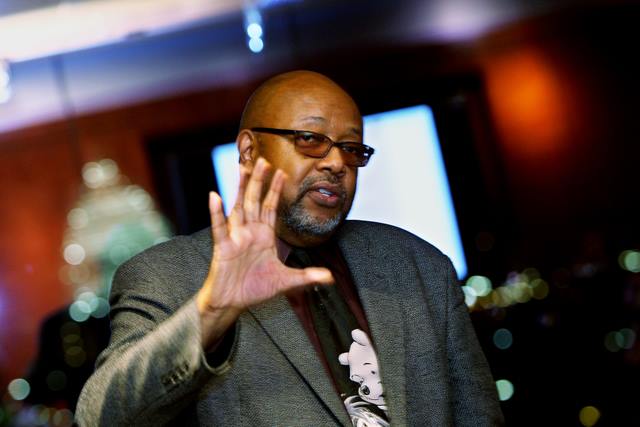
Leonard Pitts Signs Off After 46 Years
“Well, as Carol Burnett used to say, I’m so glad we had this time together,” Leonard Pitts Jr. wrote Tuesday in the Miami Herald, beginning his final column.
“I’ve written about 1.6 million words as a columnist. This 600 or so will be the last. I’m retiring for a few reasons. One is that, while I’ve managed to squeeze out four novels between column deadlines, my dream was always to write books full time. I turned 65 in October, so if not now, when? . . .
“Tomorrow, I will wake up for the first time in 46 years without a deadline to meet. It’s going to feel strange. I’ve always considered this podium a great privilege: Everyone has an opinion, after all, but precious few get to have their voices magnified — much less be paid for it.
“I tried to use that privilege to sound alarms about human rights, democracy, gun violence, the misinformation crisis and more. The fight on all those fronts goes on. Nothing ends here, except my access to this megaphone. I’ll be teaching and, of course, writing novels from now on.
“Which is fine. I’ve said pretty much all I had to say. Except for this: Isn’t it amazing how fast the years go?
“Turns out, time doesn’t really care if you’re having fun; it flies, regardless. Again, Carol Burnett said it well. ‘Seems we just get started and before you know it, comes the time we have to say, so long.’ Good night, everybody.”
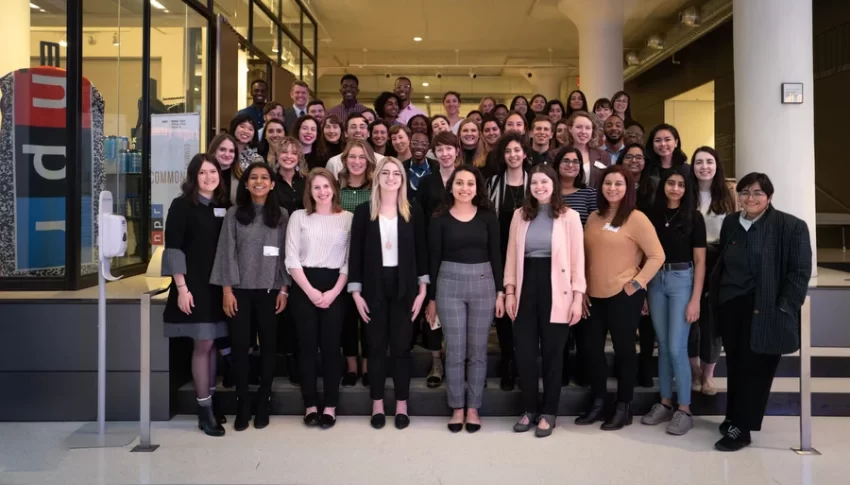
NPR Cancels Next Year’s Summer Internship
“NPR has canceled its summer 2023 internship program as it faces an economic shortfall caused by declining corporate sponsorship revenue, the network confirmed to Current Tuesday,” Tyler Falk reported Tuesday for Current.
“ ‘We are committed to providing a positive intern experience and hope to be able to reinstate it soon,’ NPR said in a statement provided by spokesperson Isabel Lara. ‘Interns and fellows remain a vital asset to our content and culture— many of NPR’s best-known journalists, hosts and executives started as interns. We fully understand the value of this program for NPR and the public radio system.’
“NPR CEO John Lansing announced last month a hiring freeze and cuts to discretionary spending in response to the anticipated sponsorship decline. The drop presents ‘a severe financial challenge,’ NPR said in its statement.
“ ‘We are acting quickly to address it, while preserving and protecting our critical public service and prioritizing the preservation of existing jobs,’ NPR said. ‘Unfortunately this means we have to make hard choices and, in addition to a near hiring freeze, we made the difficult decision to cancel this summer’s internship program.’
“NPR pays interns $16.10 per hour, according to its website. . . .”
Lightfoot Wants to Hide Police Radio Traffic
“Mayor Lori Lightfoot is defending the city’s decision to start the process of encrypting police radio transmissions, a move that will block the public from listening to those transmissions in real time,” Chicago’s WLS-TV reported Wednesday.
“A coalition of media organizations, including ABC7, is asking the mayor to reconsider the decision. Among the reasons is the impact it will have on the release of real-time information to keep the public safe during an emergency.
“On Wednesday, Mayor Lightfoot said keeping transmissions unencrypted could allow criminals access to communication and put officers in danger.
” ‘It’s about officer safety,’ Lightfoot said. ‘If it’s unencrypted and there’s access, there’s no way to control criminals who are also gonna get access, listen in and adjust their criminal behavior in response to the information that’s being communicated.’
“The media coalition pointed out that the city has never identified members of the press as the disruptors. And members of the media are regularly in touch with officials to make sure our reporting does not jeopardize police investigations or public safety. . . .”
- Matt Stroud, the Verge: Why are police scanners open to the public? (April 19, 2013)
Half of NPR’s ‘Ghetto Life’ Team Dies
“Lloyd Newman, who teamed up with a fellow teenager in the 1990s to record two award-winning radio documentaries that bared the pernicious underside of growing up in a Chicago public housing project, died on Dec. 7 in Elmhurst, Ill. He was 43,” Sam Roberts wrote Tuesday for The New York Times.
“His death, in a hospital, was caused by complications of sickle cell anemia, his brother Michael said.
“Mr. Newman, the understated, harder-luck half of the duo, was 14 and in the eighth grade when he and his best friend, LeAlan Jones, 13, tape-recorded 100 hours of oral history and interviews to produce ‘Ghetto Life 101.’ The producer David Isay transformed it into a 28-minute segment on National Public Radio in 1993.
“In 1996, the youths won a Peabody Award, the youngest broadcasters at the time to do so, for ”Remorse: The 14 Stories of Eric Morse,” a collage of recordings exploring the killing of a 5-year-old boy, tossed from the window of a vacant 14th-floor apartment in the Ida B. Wells Homes by two children, ages 10 and 11, because he had refused to steal candy for them, according to the police. . . . “
- Kat Lonsdorf, Justine Kenin, Ailsa Chang and Mary Louise Kelly, NPR: Reporter Lloyd Newman, known for Ghetto Life 101, died this week at age 43 (Dec. 9)
- NPR: SPECIAL: Remembering Lloyd Newman of Ghetto Life 101 (Dec. 9)

Right-Leaning Spanish Radio Spreads Falsehoods
The Miami Herald, in partnership with bilingual graduate students and faculty at Florida International University’s Department of Journalism and Media, monitored popular local Spanish-language shows on talk radio and YouTube, listening to more than 100 hours of programming from Oct. 17 to Nov. 11, Andres Viglucci, Joey Flechas and Leslie Cosme Torres reported Thursday for the Herald.
“The goal: exploring whether and how misleading accounts of political events and topics are disseminated across Miami’s media landscape — a controversy that has gained prominence as the region’s Hispanic voters have swung dramatically to the right. . . .
“The review found that, while some radio news hosts and commentators do provide balanced accounts of current events and political debates, others disseminate disinformation directly or indirectly by allowing callers and guests to freely repeat falsehoods or vituperation without challenge or counterpoint. . . .
“The project, launched at an especially fraught political moment in what is a unique kind of American town square, provided a window into the news, discussion and political commentary reaching a large immigrant and refugee community where many people rely primarily or exclusively on Spanish-language outlets for information. And, in instance after instance, it found the political thermometer near to bursting with partisan anger and frustration.
“On the airwaves and on some of the most popular social-media platforms, the conversation seemed to be dominated by highly partisan and sometimes extreme conservative voices, often trafficking in hyperbole that can verge on outright misinformation without context on topics ranging from the border and immigration, to U.S.-Cuba relations and the COVID-19 pandemic. . . .”
Byron Allen Makes Deal to Stream PBS Content
“Allen Media Group’s free streaming service for local news and entertainment Local Now announced today a partnership to include live streaming of local PBS stations and that network’s Kids 24/7 channel,” Tom Tapp reported Tuesday for Deadline. “Local Now’s audience will have access to PBS’s award-winning content, from locally-produced shows to high-quality educational series to viewer favorites like PBS Newshour, Frontline and Antiques Roadshow.“
 “ ‘The addition of local PBS stations is a major achievement for Local Now and cements our position as the leader of free-streaming local news and entertainment in America,’ said Byron Allen (pictured), Founder/Chairman/CEO of Allen Media Group, parent company of Local Now. ‘Viewers of all ages know and love PBS and soon they will be able to stream this amazing content for free, anytime.’
“ ‘The addition of local PBS stations is a major achievement for Local Now and cements our position as the leader of free-streaming local news and entertainment in America,’ said Byron Allen (pictured), Founder/Chairman/CEO of Allen Media Group, parent company of Local Now. ‘Viewers of all ages know and love PBS and soon they will be able to stream this amazing content for free, anytime.’
“PBS Chief Digital and Marketing Officer, Ira Rubenstein also weighed in.
“ ‘This exciting partnership helps us continue to meet viewers everywhere they are with the quality content they expect from PBS,’ he said. ‘By providing an accessible platform through Local Now, PBS stations will be empowered to expand their digital footprint and engage new audiences with locally-produced and distributed programming. It’s all part of supporting and boosting the presence of our PBS stations in the communities we serve.’ . . . ”
The Philadelphia Inquirer collected what it considered its best videos of 2022. “Lights. Camera. Crime,” the second episode of the “A More Perfect Union” series, made the cut. It “offers a look at how a format of TV news created in Philadelphia and exported to more than 141 media markets portrayed Black people as criminals, which discouraged empathy and helped to popularize harsher criminal justice policies.” (Credit: YouTube)
Racism Poured From Nation’s First Water Taps
“A taste of revolution was still in the air in 1798 when Philadelphia began creating the nation’s first municipal water system. But from the first plan on, racism polluted the taps,“ Layla A. Jones and Dain Saint wrote Dec. 6 for the Philadelphia Inquirer’s “A More Perfect Union” project.
The series is “examining the roots of systemic racism through institutions founded in Philadelphia.”
“The British architect charged with imagining the steam-powered pumps and public baths intended to keep the city hydrated and free of disease won over the city’s elite with an innovative proposal. He made no secret of whom the infrastructure would serve. It was a water system designed to cool the city’s European residents who ‘have not yet learned how to live healthy in a hot climate,’ wrote architect Benjamin Latrobe.
“White Europeans couldn’t take the heat, so it was time to modify the kitchen.
“The system Philadelphia built operated on the premise that water was a property right, not a human right. The clean H₂O flowed only to those who could pay for it to be piped into their homes. Meanwhile, the plan guiding the city’s development prioritized European colonial settlers who could buy land and build homes, but left few options for Black people to build their own. These families shared overstretched public pumps.
“By 1899, when W.E.B. Du Bois published his landmark sociological text, The Philadelphia Negro, less than 14% of Black families surveyed had access to bathrooms, water closets, or private outhouses, according to his research. Even comfortable families shared water resources. ‘[I]ts water,’ Du Bois wrote of Philadelphia, ‘is wretched.’
“Racial disparity in water access persists. . . .”
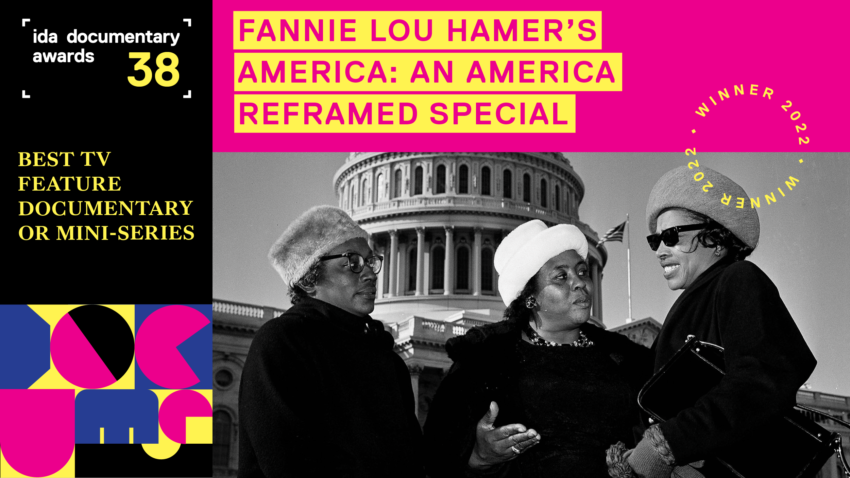
Short Takes
- “Fannie Lou Hamer’s America: An America ReFramed Special” by GBH WORLD Channel, The Bitter Southerner, Black Public Media and PBS, won as “Best TV Feature Documentary or Mini-Series” from the International Documentary Association Saturday. Other winners included “Origins of Hip Hop,” A&E, Best Episodic Series; “We Need to Talk About Cosby,” Showtime, “Best Multi-Part Documentary”; “ Louis Armstrong’s Black & Blues,” Apple TV+, “Best Music Documentary,” “Riotsville U.S.A.,” Magnolia Pictures, ABC News VideoSource Award’; and several awards for “All That Breathes,” set in New Delhi, India.
- “Diversity in television commercials took a hit in 2022, with the share of people of color shown in ads dropping to 27.6% from 34.5%, according to a new study” from Extreme Reach, a company that helps deliver and track ads, Jon Lafayette reported Tuesday for Broadcasting & Cable. “White people represented 72.5% of the actors in ads, up from 54.6%, the study found. Black actors got 14.3% of the roles in ads, down from 16.5%. Hispanics fell to 5% from 9.6% and Asians in ads dropped to 8.3% from 8.4%. . . .”
- The Biden administration arranged for 25 journalists from Africa to attend the U.S.-Africa Leaders Summit, which ended Thursday, Edward Wong and Michael Crowley reported Tuesday for The New York Times. The administration’s “efforts to promote democracy have included anti-corruption programs and support for independent journalism,” they wrote. A spokesperson for the National Security Council messaged Journal-isms, “In keeping with budgetary constraints, the State Department chose respected journalists who had large audiences in host countries whose leaders were expected to have a speaking role during the Summit. “
- “Hebrew Israelite groups have been making headlines thanks to Kanye West, Kyrie Irving and their antisemitism controversies,” Robin Washington wrote Tuesday for the Forward. “News outlets and advocacy groups like the Anti-Defamation League have published primers describing the groups, which vary widely in their origins, beliefs, and practices. But few of these explainers are shaped by Black scholars who study these movements or by Hebrew Israelites themselves.” Washington interviewed Bruce Haynes, professor of sociology at the University of California Davis, and author of “The Soul of Judaism: Jews of African Descent in America”; and Walter Isaac, a faculty member at the University of Tennessee Knoxville who has written extensively on Afro-Jewish Studies. At the end of the piece, an editor’s note reads, “The Forward avoids use of the term ‘Black Hebrew Israelites’ out of concern that it inappropriately conflates hate groups with organizations and individuals who condemn their actions, and to avoid any confusion between these movements and Black Jews generally. It is also important to note that Israelite groups are not exclusively Black. “
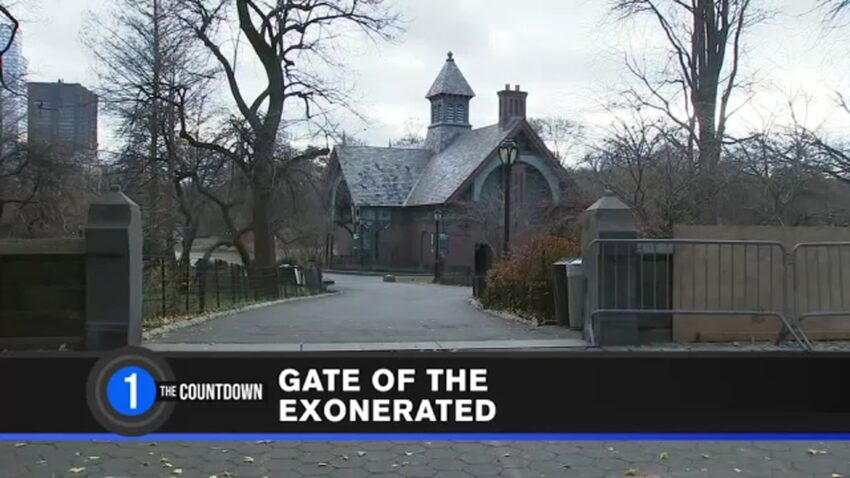
- In New York, “An entrance to Central Park will be named the Gate of the Exonerated, for the teenagers who were wrongfully convicted of a crime that triggered a national conversation on racial injustice,” the New York Times reported.” In 1989, “five Black and brown teenagers were coerced by police into confessing to crimes they did not commit, losing 13 years of their lives.” Broadcast media, tabloids and the establishment broadsheets fanned the frenzy.
- “HuffPost and BuzzFeed News are launching a 10-month Talent Residency focused on fostering and supporting the social growth and creativity of a small cohort of short-form content creators,” HuffPost reported Dec. 5. “BuzzFeed’s expert Creators team has spent the last two months scouting talent with unique lived experiences to be a part of this exciting residency. We received more than 1,000 applications and, with an eye toward diversity, ultimately selected 10 creators who have something compelling to say about a wide range of topics, such as identity, culture, equality, health, parenting, personal finance and more. . . .”
- The New York Times has rejected accusations from producers of the Broadway show “KPOP,” which is about the worldwide K-Pop music phenomenon, that a review by theater critic Jesse Green was racist. “Those upset with Green’s review take issue with the critic’s seeming displeasure with the amount of Korean language in KPOP,” Playbill reported, but Green “gushed” “when reviewing National Yiddish Theatre Folksbiene’s 2018 production of Fiddler on the Roof (currently back for an encore run at New World Stages) that is performed completely in Yiddish.” A Times spokesman told Journal-isms, “We saw the open letter written about The Times’s review of KPOP and quickly convened a discussion among editors and members of our standards department. This group was in agreement that Jesse’s review was fair. More importantly, we wholly disagree with the argument that Jesse’s criticism is somehow racist. We always welcome feedback and reaction to our journalism, and have conveyed a similar reply to the producers who wrote the open letter.” The show ended its Broadway run on Sunday.
- “I wish race was no longer an issue that needed to grappled with,” Issac Bailey, a McClatchy opinion writer based in Myrtle Beach, S.C., wrote Wednesday. “But because of this state’s history, and everyday 21st century realities, it remains a struggle.” His column was headlined, “A phone call brought home the critical role Black journalists play.”

- “A Calgary news anchor had the best response when a viewer contacted her place of work to complain that she was ‘heavily pregnant’ on the air,” Charlie Hart wrote Monday for Narcity Canada. Kathy Le tweeted in response, “I’m grateful to have been able to work very close to the end of my pregnancy and I hope that every time this viewer saw me on TV [past] 4 months it pissed him off more. #somepeople Yours Truly, Heavily Pregnant Woman 😆”
- In the new Netflix docuseries “Harry and Meghan,” NBC News reports, “Prince Harry suggested that some members of his family did not recognize the role of racism in the scrutiny of Meghan,” the Duchess of Sussex. “In the documentary, Meghan said she hadn’t thought much about her race until the media made it an issue. ‘It’s very different to be a minority but not be treated as a minority right off the bat, Meghan said in the second episode of the six-part series, the first three of which were released by the streaming service. ‘Obviously now people are very aware of my race because they made it such an issue when I went to the U.K.’ On the flip side, Harry suggested that some of his family did not recognize the role that race played in the coverage given to Meghan as compared to other members of the family.”
 “On multiple occasions, our industry’s publications of record have platformed transphobia or emboldened anti-trans rhetoric,” Tre’vell Anderson (pictured), a freelance entertainment journalist, podcast host and board member of the National Association of Black Journalists, wrote for Nieman Lab. He also wrote, “This, really, is about the ways these anti-trans pieces are being used as literal ammunition in state legislatures to justify the oppression, marginalization, and institutional violence being enacted on trans people; they’re not just discourse for discourse’s sake.”
“On multiple occasions, our industry’s publications of record have platformed transphobia or emboldened anti-trans rhetoric,” Tre’vell Anderson (pictured), a freelance entertainment journalist, podcast host and board member of the National Association of Black Journalists, wrote for Nieman Lab. He also wrote, “This, really, is about the ways these anti-trans pieces are being used as literal ammunition in state legislatures to justify the oppression, marginalization, and institutional violence being enacted on trans people; they’re not just discourse for discourse’s sake.”
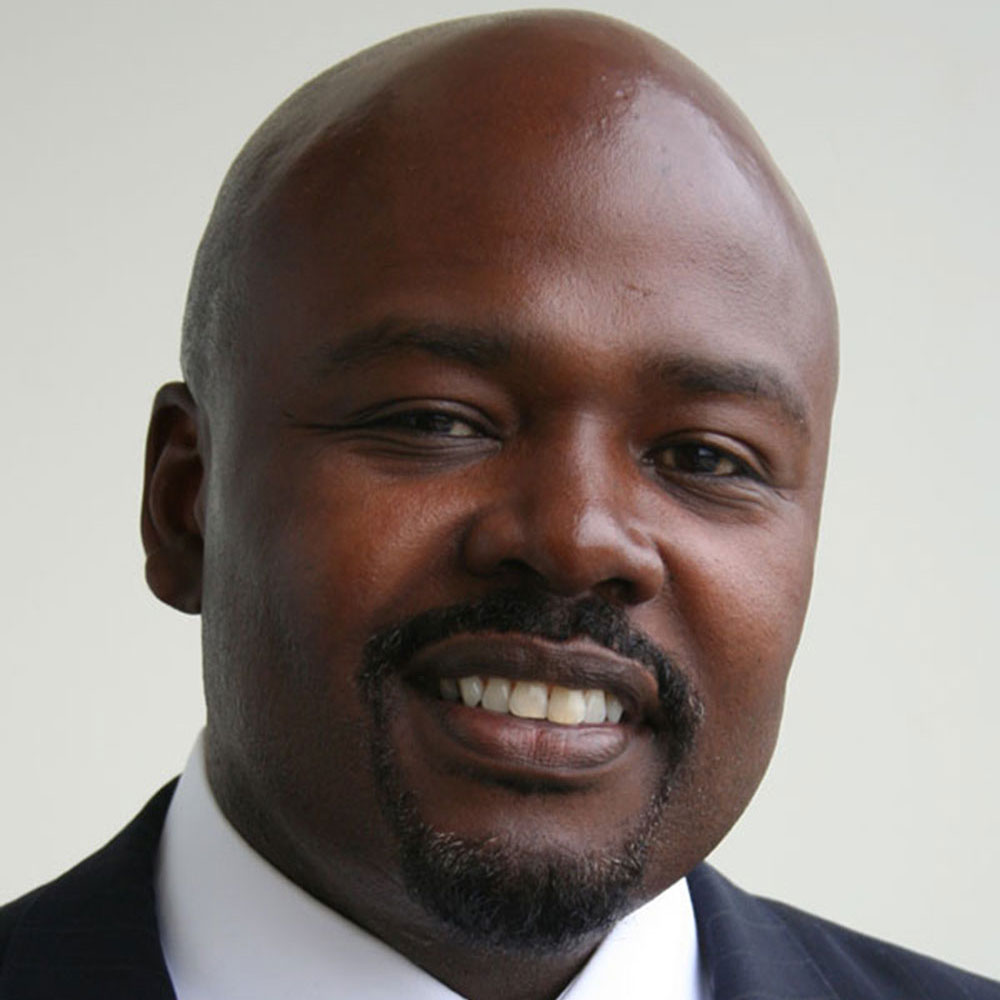 Jennifer Kho, top editor at the Chicago Sun-Times, has responded to the resignation of columnist John W. Fountain (pictured) following a dispute over how his column would be edited (scroll down) “I wish we could have resolved this issue, but I respect John’s decision to resign,” Kho messaged Tuesday. “My approach is to be highly collaborative with writers, whether they are reporters or columnists, to elevate their voices in the editing process. My goal is to help them not only reach, but also touch, our readers and make their work as impactful as possible. John’s departure is not the outcome any of us wanted. I’ve enjoyed reading his columns and I appreciate his voice and his work to inform our community over 13 years.” Former Chicago Tribune columnist Eric Zorn wrote on his own website, “The original column struck me as fine but, on paper, some of Kho’s suggestions also seemed reasonable. I’m not sure I’d want to referee this dispute even if I had been able to get Kho’s side of the story.”
Jennifer Kho, top editor at the Chicago Sun-Times, has responded to the resignation of columnist John W. Fountain (pictured) following a dispute over how his column would be edited (scroll down) “I wish we could have resolved this issue, but I respect John’s decision to resign,” Kho messaged Tuesday. “My approach is to be highly collaborative with writers, whether they are reporters or columnists, to elevate their voices in the editing process. My goal is to help them not only reach, but also touch, our readers and make their work as impactful as possible. John’s departure is not the outcome any of us wanted. I’ve enjoyed reading his columns and I appreciate his voice and his work to inform our community over 13 years.” Former Chicago Tribune columnist Eric Zorn wrote on his own website, “The original column struck me as fine but, on paper, some of Kho’s suggestions also seemed reasonable. I’m not sure I’d want to referee this dispute even if I had been able to get Kho’s side of the story.”

- “It’s been three years since the Tampa Bay Times first published a report with evidence that the Italian Club Cemetery’s parking lot was once the location of College Hill Cemetery, likely containing up to 1,200 graves of Tampa’s pioneering Black and Cuban residents,” Paul Guzzo reported Tuesday for the Tampa Bay (Fla.) Times. “No one has found proof the graves were moved, so archaeologists believe they could still be under the parking lot and a portion of a mausoleum. The Italian Club continues to use the acre of land at 2520 E 24th Ave. for parking. Now, two Tampa residents, independent of one another, are asking for the city to intervene. . . .”
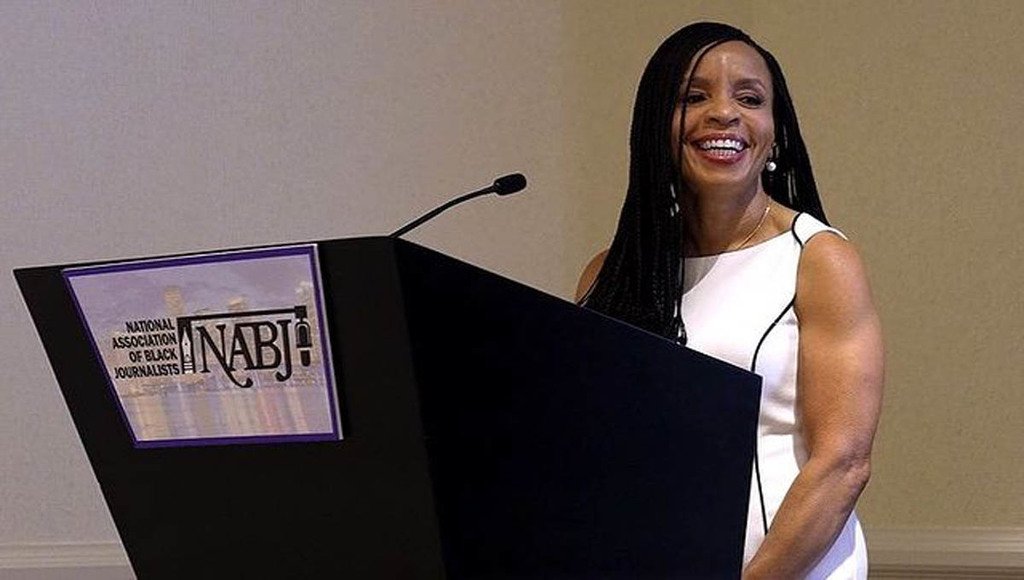 A glaring error — calling MSNBC President Rashida Jones “the only Black head of a major television network” and “the only Black major television network president in America” — remains on the website of the Atlanta Voice. Kim Godwin, president of ABC News (pictured), was named to her position in April 2021, not long after Jones’ promotion.
A glaring error — calling MSNBC President Rashida Jones “the only Black head of a major television network” and “the only Black major television network president in America” — remains on the website of the Atlanta Voice. Kim Godwin, president of ABC News (pictured), was named to her position in April 2021, not long after Jones’ promotion.
- “Rainbow PUSH Coalition founder Rev. Jesse Jackson has told the Federal Communications Commission it should approve the merger of Standard General and Tegna, “John Eggerton reported Tuesday for Broadcasting & Cable. “In a letter to the FCC Monday (December 12), Jackson said that after meeting with Standard General founding partner Soo Kim, who is Asian-American, and upon ‘careful and scrupulous review of his record on diversity and inclusion,’ he and his organization ‘wholeheartedly support the purchase of Tegna.’ ”
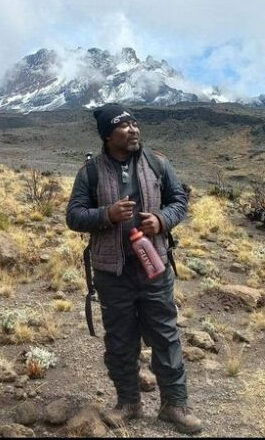 A Tanzanian journalist died after scaling Mount Kilimanjaro, Africa’s highest mountain, on Dec. 9 with executives who were launching high-speed internet services “on top of the rooftop of Africa,” the Daily News in Tanzania reported Wednesday. While descending the mountain, Joachim Kapembe (pictured), 45, decided to use a mountain bike and “got in an accident which caused serious injury on his head as reported by medical doctors,” a government spokesman said.
A Tanzanian journalist died after scaling Mount Kilimanjaro, Africa’s highest mountain, on Dec. 9 with executives who were launching high-speed internet services “on top of the rooftop of Africa,” the Daily News in Tanzania reported Wednesday. While descending the mountain, Joachim Kapembe (pictured), 45, decided to use a mountain bike and “got in an accident which caused serious injury on his head as reported by medical doctors,” a government spokesman said.
- “A new lawsuit accuses Facebook of playing a role in political violence in Africa and seeks to hold it accountable by demanding more than $2 billion in restitution funds and major changes to the service’s content moderation efforts in the continent,” Eli M. Rosenberg reported Tuesday for NBC News. “It is the latest case to draw connections between the platform and ethnic violence in the developing world.” Abrham Meareg,, the son of a slain professor in Ethiopia, said he appealed to Facebook to have posts targeting his father removed but heard nothing back for weeks, Vittoria Elliott and Dell Cameron reported Tuesday for Wired. “I hold Facebook personally responsible for my father’s murder,” Amare said.
- “A popular Chinese-owned news app used by millions of Nigerians is being driven by algorithms that promote misinformation, according to a new study,” Torinmo Salau reported Monday for Semafor. “The Opera News app is pre-installed on Tecno, Infinix and Itel phones, which are made by Transsion, a Chinese phone manufacturer which is the largest smartphone manufacturer in Africa. It also holds over 50% of the market share of smartphones in Nigeria, which has the continent’s biggest population. . . . “
To subscribe at no cost, please send an email to journal-isms+subscribe@groups.io and say who you are.
Facebook users: “Like” “Richard Prince’s Journal-isms” on Facebook.
Follow Richard Prince on Twitter @princeeditor
Richard Prince’s Journal-isms originates from Washington. It began in print before most of us knew what the internet was, and it would like to be referred to as a “column.” Any views expressed in the column are those of the person or organization quoted and not those of any other entity. Send tips, comments and concerns to Richard Prince at journal-isms+owner@
View previous columns (after Feb. 13, 2016).
View previous columns (before Feb. 13, 2016)
- Diversity’s Greatest Hits, 2018 (Jan. 4, 2019)
- Book Notes: Is Taking a Knee Really All That? (Dec. 20, 2018)
- Book Notes: Challenging ’45’ and Proudly Telling the Story (Dec. 18, 2018)
- Book Notes: Get Down With the Legends! (Dec. 11, 2018)
- Journalist Richard Prince w/Joe Madison (Sirius XM, April 18, 2018) (podcast)
- Richard Prince (journalist) (Wikipedia entry)
- February 2018 Podcast: Richard “Dick” Prince on the need for newsroom diversity (Gabriel Greschler, Student Press Law Center, Feb. 26, 2018)
- Diversity’s Greatest Hits, 2017 — Where Will They Take Us in the Year Ahead?
- Book Notes: Best Sellers, Uncovered Treasures, Overlooked History (Dec. 19, 2017)
- An advocate for diversity in the media is still pressing for representation, (Courtland Milloy, Washington Post, Nov. 28, 2017)
- Morgan Global Journalism Review: Journal-isms Journeys On (Aug. 31, 2017)
- Diversity’s Greatest Hits, 2016
- Book Notes: 16 Writers Dish About ‘Chelle,’ the First Lady
- Book Notes: From Coretta to Barack, and in Search of the Godfather
- Journal-isms’ Richard Prince Wants Your Ideas (FishbowlDC, Feb. 26, 2016)
- “JOURNAL-ISMS” IS LATEST TO BEAR BRUNT OF INDUSTRY’S ECONOMIC WOES (Feb. 19, 2016)
- Richard Prince with Charlayne Hunter-Gault, “PBS NewsHour,” “What stagnant diversity means for America’s newsrooms” (Dec. 15, 2015)
- Book Notes: Journalists Follow Their Passions
- Book Notes: Journalists Who Rocked Their World
- Book Notes: Hands Up! Read This!
- Book Notes: New Cosby Bio Looks Like a Best-Seller
- Journo-diversity advocate turns attention to Ezra Klein project (Erik Wemple, Washington Post, March 5, 2014)
When you shop @AmazonSmile, Amazon will make a donation to Journal-Isms Inc. https://t.co/OFkE3Gu0eK
— Richard Prince (@princeeditor) March 16, 2018

